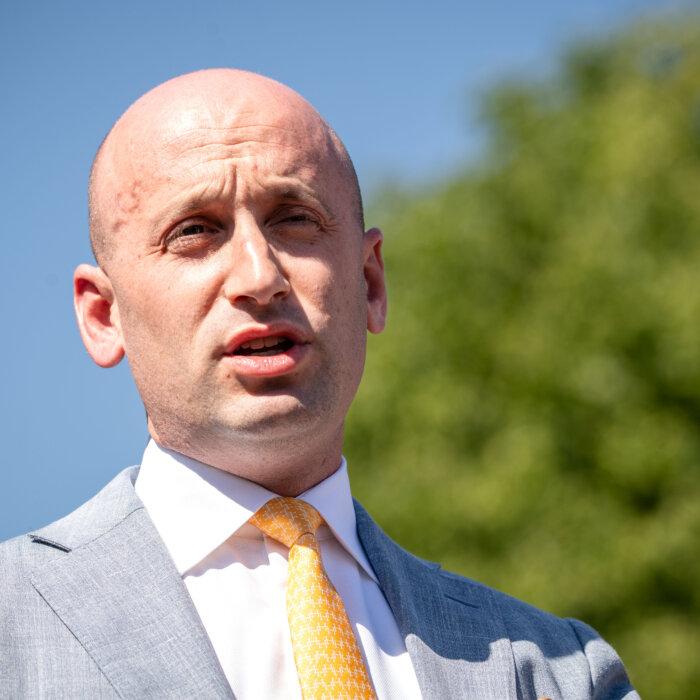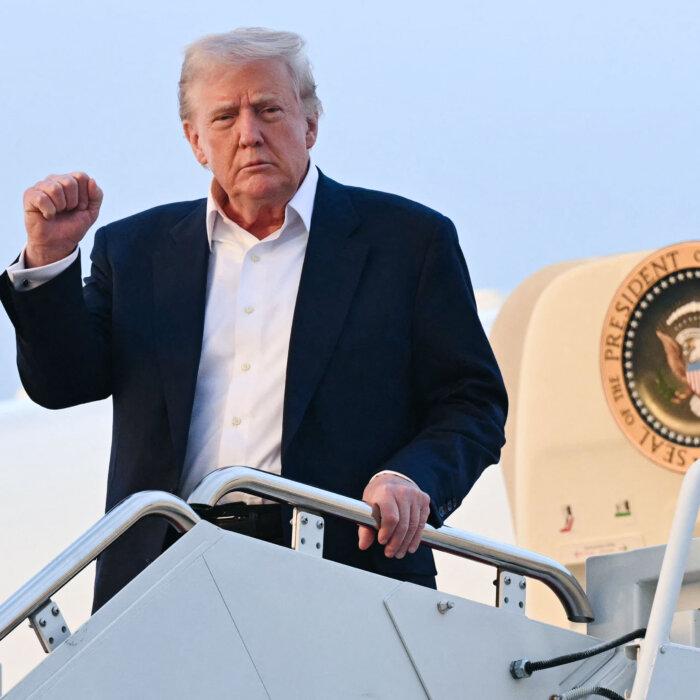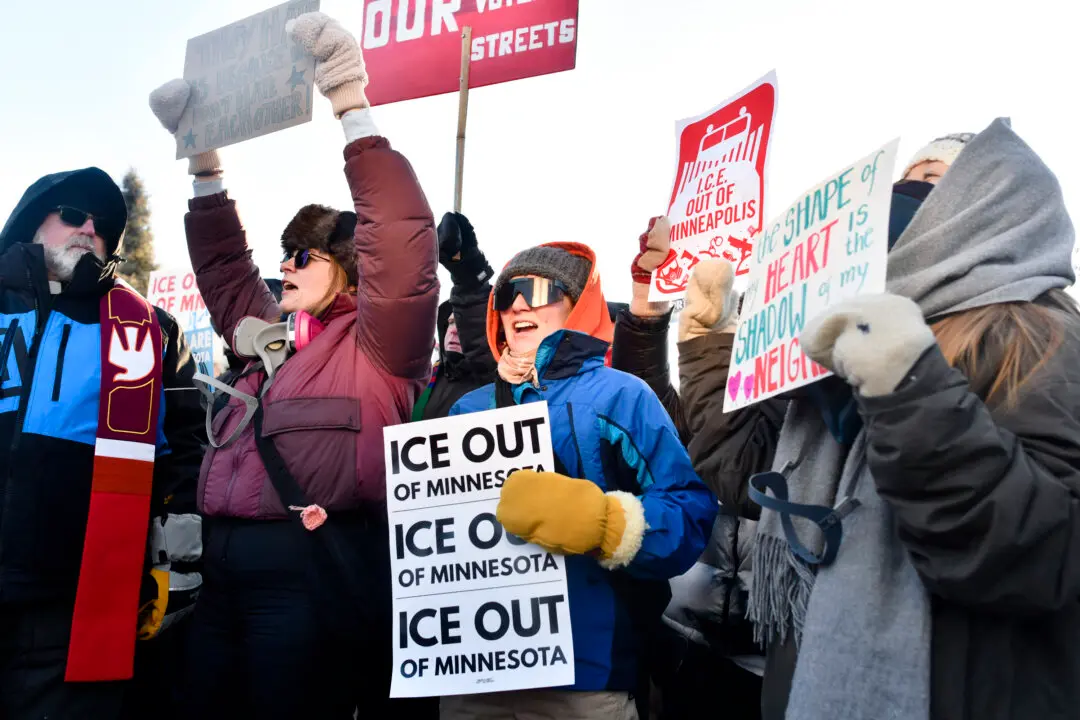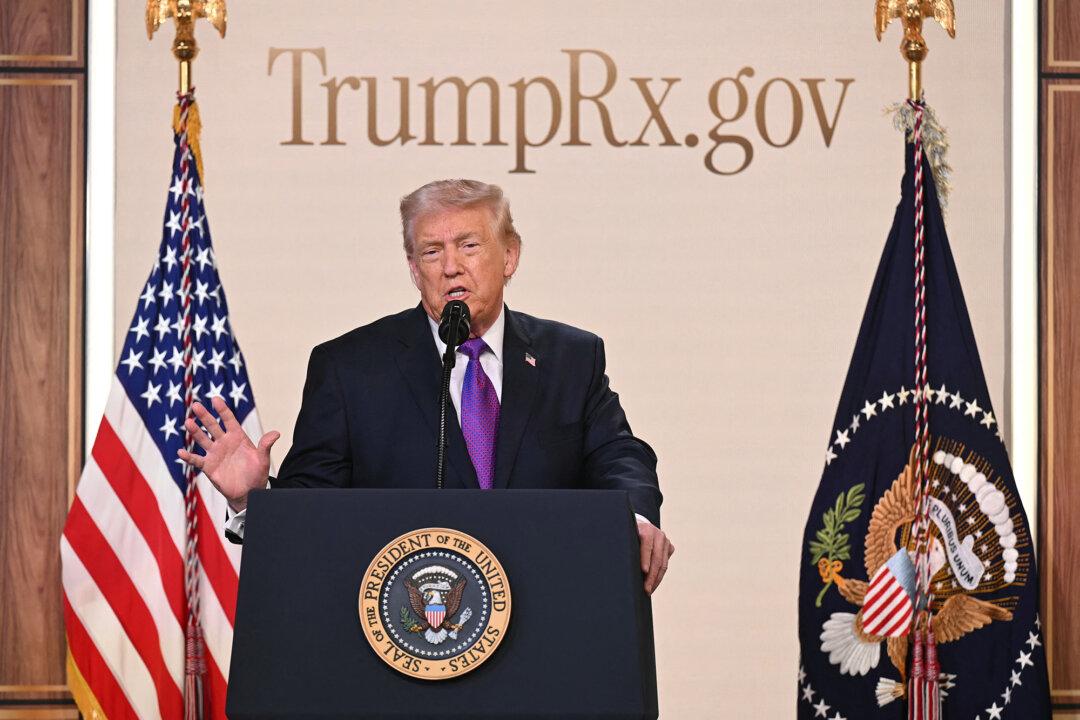U.S. President Donald Trump marked 100 days in office last week, with controversy still swirling around his “America First” agenda.
During those 100 days he has signed more directives than any other president, becoming the most consequential in a century.
Focusing on immigration, federal spending, and government reform—and with a China-centred foreign policy—Trump hasn’t held back in fulfilling his campaign promises.
This hasn’t come without consequences. More than 210 lawsuits challenging Trump’s actions have been filed, and hundreds of protests have taken place across the country.
Significant Democrat opposition has widened the gap in an already divided Congress, presenting polar opposite views on how the government should be run.
Border crossings have been drastically reduced, reaching their lowest level in decades, with an April report citing a 95 percent drop from the previous year, along with a widespread crackdown on illegal immigration.
In January, Trump declared a national emergency on the border shortly after his inauguration.
In March, he invoked a rare wartime invasion law called the Alien Enemies Act of 1798, targeting criminal gangs, particularly the Venezuelan Tren De Aragua, and sending them to an El Salvadorian maximum security prison. Trump argued that they had been sent to the United States by Venezuelan leader Nicolas Maduro.
A key focus of tackling the border crisis was also to stop fentanyl from coming across the border into the United States, fuelling an opioid crisis that has claimed over 81,000 lives a year.
Fentanyl, a potent synthetic opioid 50 times stronger than heroin, has a lethal dose of only two milligrams, which is about the size of a few grains of salt. It is produced in China and has been entering America mainly from Mexico across the southern border. It has also been reported that it has been coming across the northern border from Canada.
Trump accused Canada and Mexico in January of not having done enough to stem the flow of fentanyl, and imposed 25 percent tariffs on the two countries.
A wave of reciprocal tariffs has since ensued around the globe against all trading partners, seemingly centred on China, on top of a 10 percent baseline tariff. Trump has argued, citing a $1.2 trillion trade deficit, that the United States has been exploited by trading partners for decades.
Although the 10 percent baseline remains in place, all reciprocal tariffs are currently on a 90-day pause except for China, which amid a tit-for-tat trading spat is now being targeted with a 145 percent tariff on all goods.
China has also been at the centre of Trump’s foreign policy, with Secretary of State Marco Rubio describing it as “the most potent and dangerous near-peer adversary this nation has ever confronted,” during his Senate confirmation hearing.
This led to the United States reclaiming Panama Canal ports from a China-owned Hong Kong company and positioning the Latin American country to leave China’s Belt and Road Initiative.
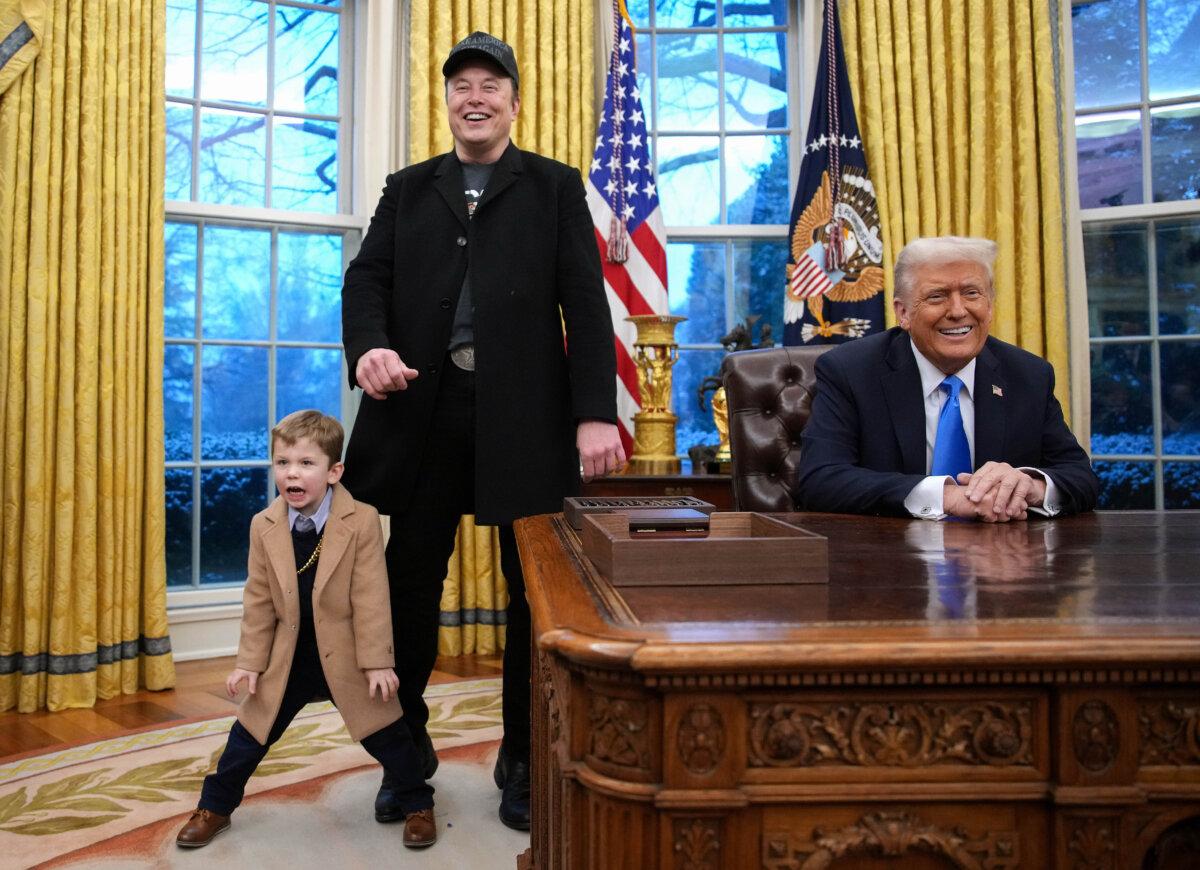
Elon Musk
Trump’s vision of deflating the U.S. government and reducing its $36 trillion debt wasn’t an empty promise either.What started as a discussion during a live interview between Trump and Tesla and SpaceX CEO Elon Musk about government waste during Trump’s campaign in August 2024 quickly formed into the Department of Government Efficiency (DOGE) following Trump’s inauguration.
Heading a small team of volunteers, Musk has ruffled feathers and invoked lawsuits in his mission to identify government waste and reduce the government’s debt.
To date, DOGE states on its website that is has saved an estimated $106 billion.
Musk has announced that he is stepping back from his position, but DOGE will continue its work until its planned closure on July 4, 2026.
Robert F. Kennedy Jr. was appointed to lead Health and Human Services, and since day one has promised to reform and restructure the agency.
Working alongside DOGE, Kennedy has reduced the size of the organisation to make it more effective, and vowed to have found a cause for the increase in autism cases by September.
According to the agency, autism has risen to affect one in 31 children, up from one in 150 in 2000.
Trump’s explosive first few months in his second term have been compared to the 32nd President Franklin D. Roosevelt, who took the helm in 1933 amid the Great Depression.
Roosevelt made sweeping changes, enhancing the government’s relationship with its people and creating stronger regulation of banks.
He was famous for initiating the New Deal, which created the country’s first welfare state.
Trump’s vision, arguably just as fierce, has taken the country in the opposite direction with less government regulation, breaking from the globalist sensibilities of recent decades to focus on national independence.

